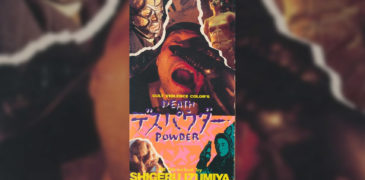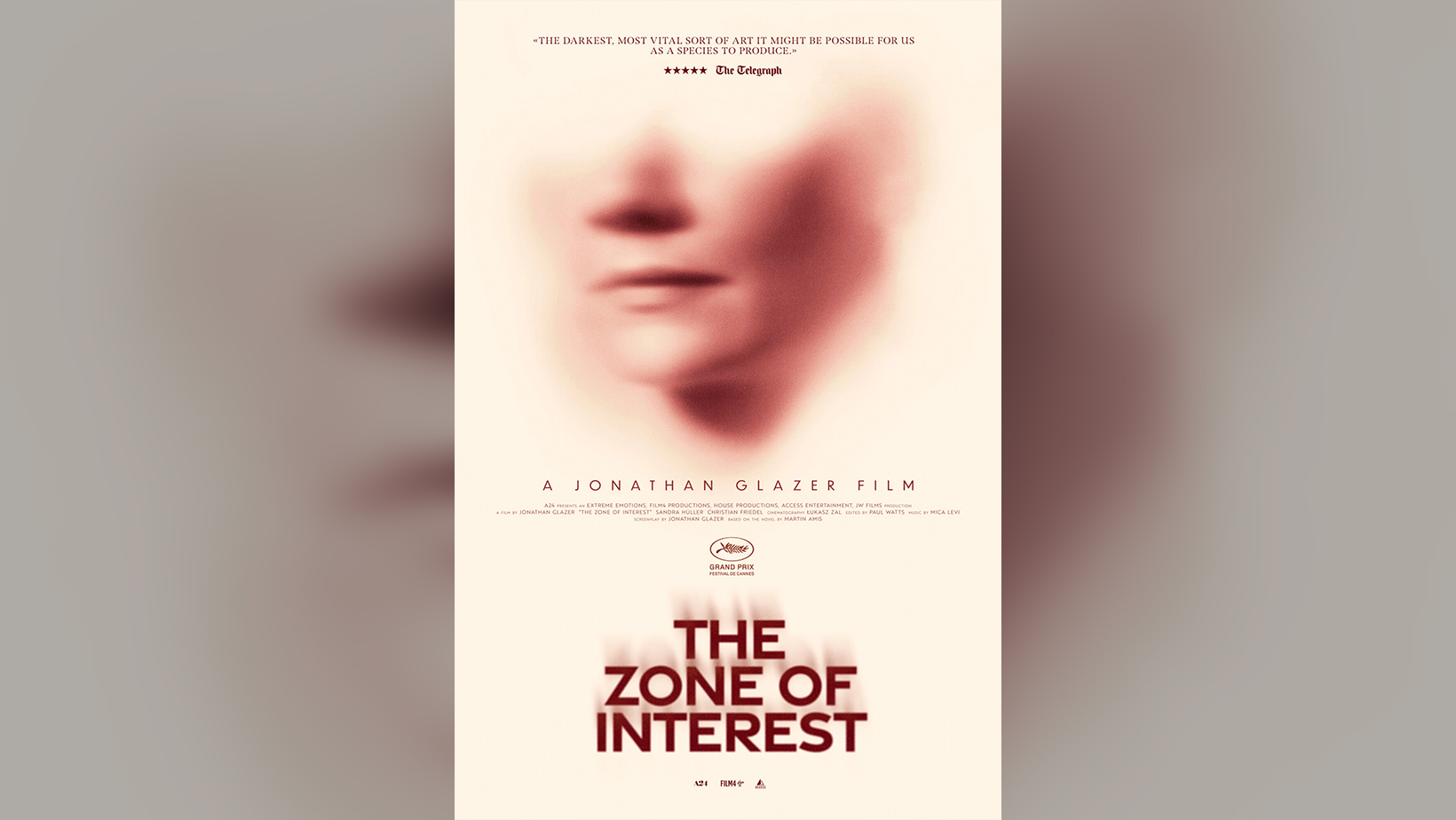
Jonathon Glazer’s latest directorial offering, The Zone of Interest (2023) is an understated, yet powerfully urgent warning of how easily humanity can be lost if we are allowed to lose ourselves to unquestioned, hateful dogma, at the exclusion of all else.
On the face of it, if the viewer knew nothing of history or the film’s setting, The Zone of Interest could be seen as a mere domestic drama. Slowly played out, the film is concerned with the stresses of raising a family, succeeding at work, and holding on to a patch of happiness that the protagonist has so fortunately been able to cultivate. The protagonist, in this case, however, is Rudolf Hoss, the Commandant of Auschwitz.
Similar to Glazer’s other literary adaptions (Under the Skin 2013), he utilises only the broad ideas at play within Martin Amis’s source novel. The minutia of the characters’ domestic issues are only hinted at, preferring to focus on the greater themes within the text.
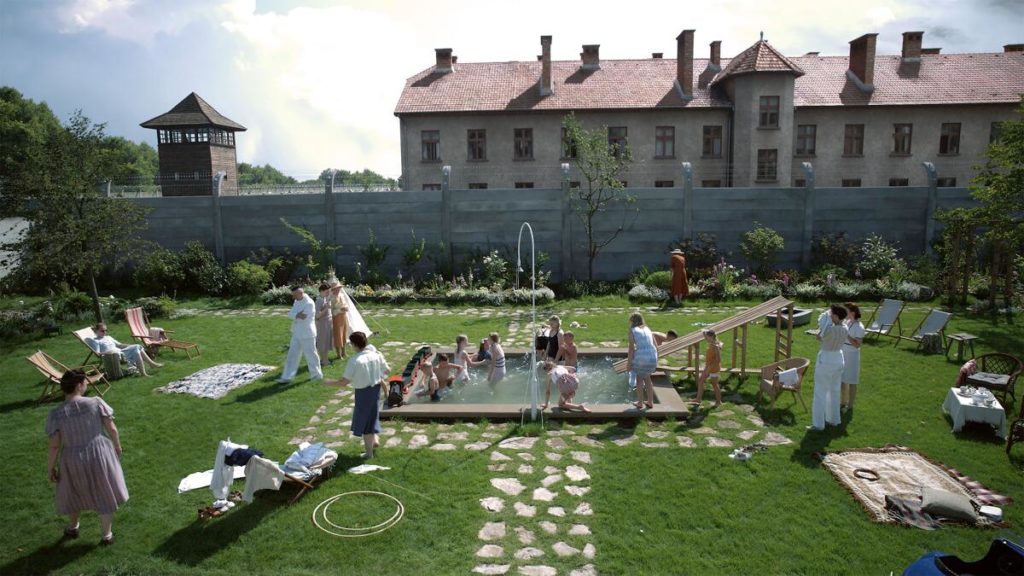
Like a piece of art, mounted within a frame, the Hoss family life is portrayed as idyllic, by way of an indoctrinated acceptance of the almost unimaginable suffering that surrounds them. The industrial genocide sustains the paradise, to which they believe they are entitled, as a reward for their unquestioning devotion and belief in National Socialism.
Beautifully shot in every scene, The Zone of Interest is artfully lit and symmetrically framed, recalling a less frivolous and far more serious Wes Anderson. Like earlier Holocaust films, such as Laszlo Nemes’ Son of Saul (2015), Glazer never points the camera directly at the large-scale suffering but, unlike Nemes, he rarely focuses on facial expressions. Instead, Glazer opts to highlight interior spaces, buildings, or natural landscapes that the Hoss family occupies. The film is concerned with the zones in which they live, the area in which the apparent domestic normalcy plays out, which is constantly contrasted with the horrors that are ever present at the edges. Glazer allows the affront to humanity, out of sight at the periphery, to seep into the domestic scenes at the film’s centre.

The Hoss’ Eden is bordered by barbed wire fences, with guard towers and the camp’s ominous brick buildings always visible. The plumage of steam, tracking across the horizon, indicates the arrival of trains and their ill-fated cargo, and the roar of the furnaces adds a stygian glow to each night. There is no soundtrack, but the sounds of gunfire, screams, and mechanised, large-scale murder often reverberates nearby, cutting across the otherwise peaceful bird song and hum of nature. The film’s diegetic sounds are dispersed with brief, deep blasts of unsettling tonal pieces that reverberate with a threatening unease, an aural representation of the natural sickening response to the normalisation of genocide. Boots are cleaned of blood, stolen clothing, and jewellery are handed out, and all characters are scrubbed clean having inadvertently encountered the sinister byproducts of the camp, to which they are all utterly devoted and dependent on.
The characters are well-acted and realistically underplayed. The urban banality only highlights their eerily uncanny everyday concerns, enveloped, as they are, by the nadir of humanity. Rudolf, played by Christian Friedel, shows a sincere love of his horse and true compassion towards strangers’ dogs, all juxtaposing his coldly efficient administration of Hitler’s Final Solution. The seemingly detached, everyday activity of Hoss and his family, is the very embodiment of what historian and philosopher, Hannah Arendt, described as The Banality of Evil.
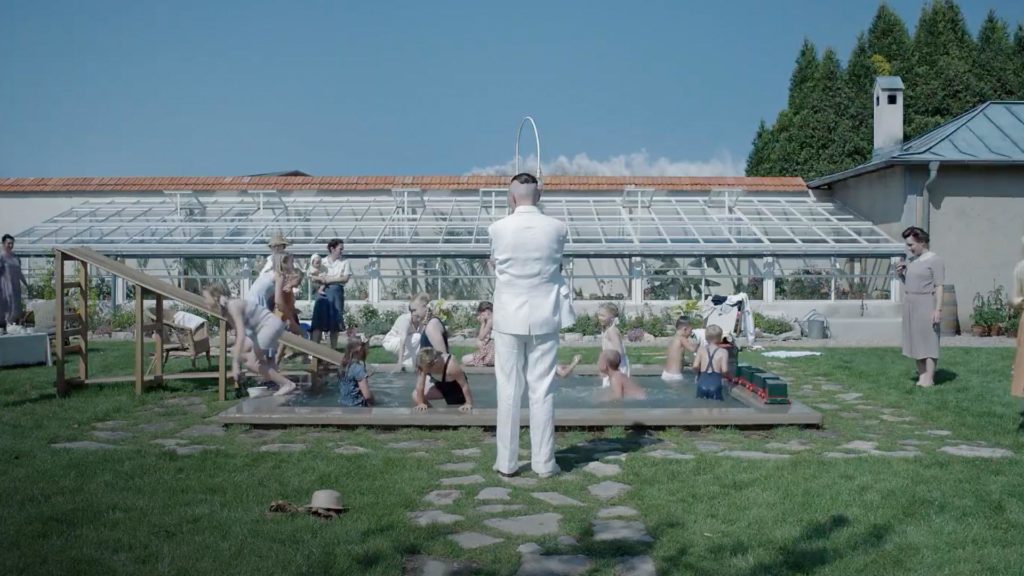
The small acts of kindness, attempted at night by a local servant girl, are shot in a harsh, possibly heat-based, film that inverts black and white like a negative, making her actions stand out as alien within the film’s wider, bleaker landscape. Such small kindness is only later revealed to be the inadvertent cause of more death, overheard by one of the Hoss children, whose reaction is upsettingly matter-of-fact.
As The Zone of Interest develops, the protagonists could be seen to suffer some side effects at having normalised the obscene situation. The visiting mother-in-law leaves unannounced, having witnessed the furnace’s nocturnal activity, and Hedwig Hoss, played by Sandra Huller, lets slip a dark threat that reveals her full knowledge of the camp’s activities. Even Rudolf, suffering some internal malady, pauses during his descent of a darkened staircase while the viewer is shown artifacts, displayed at the modern-day Auschwitz Museum, being moped, and wiped by cleaning staff. We’re left to ponder if his physical sickness might be in some way due to his actions, and how, possibly, Hoss might somehow grasp some concept of what he is a part of, and what his actions will ultimately achieve.
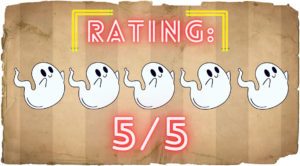
More Film Reviews
Wicked World (1991) Film Review – Toronto is Swarming with Nihilists
In 1989 Barry Gillis released, arguably, the worse film ever made with his sci-fi horror experiment Things (1989). The mix of incoherent story, disorienting and cheap camera work along with…
Blood in the Snow Film Festival BITS 2021- Short Films Spotlight
Blood in the Snow (BITS) is a Toronto-based horror film festival that is presenting its 9th annual line-up at the Royal Alexander Theatre from November 18-23, 2021. Festival director Kelly…
Mexico Barbaro II (2017) Film Review – A Grisly Romp South of the Boarder
Mexico Barbaro II is a 2017 horror anthology film, with segments written and directed by Diego Cohen, Christian Cueva, Ricardo Farias, Adrian Garcia Bogliano, Michelle Garza Cervera, Carlos Meléndez, Alfredo…
Dessert and Beyond: A Comparison Study of Conventional Vs. Unconventional Music in Asian Horror and Extreme Cinema
A young daughter, around four years old, watches a pop idol group cheerfully perform on tv with her father. Meanwhile in the kitchen, we see her mother dutifully preparing dinner,…
Death Powder (1986) Film Review – Take The Trip, Enjoy The Ride
Death Powder is a 1986 Japanese cyberpunk body horror film, written and directed by Shigeru Izumiya. Izumiya is mostly known as a poet/folk singer with a career spanning from the…
Settlers (2021) Film Review – What Would You Do in Order to Survive?
This dystopian sci-fi centers on a family at the very edge of the human frontier: Mars. The mother, father, daughter trio seem to live a Utopian existence until the outside…





